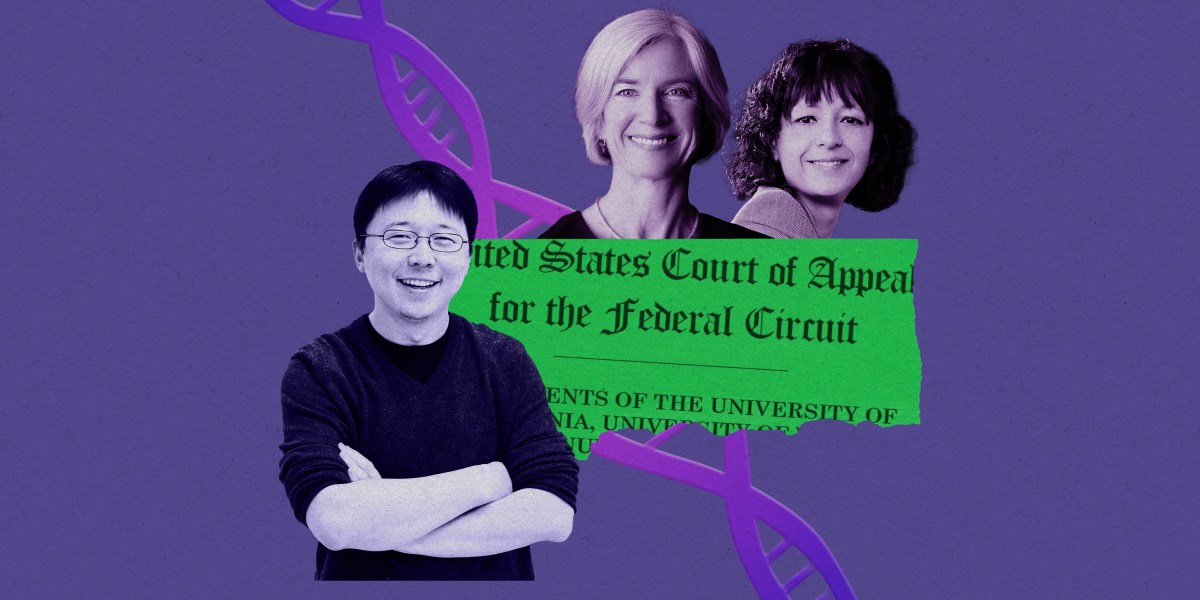US Appeals Court Orders Fresh Review of CRISPR Patent Rights
Table of Contents
- US Appeals Court Orders Fresh Review of CRISPR Patent Rights
- Inventorship Standards Reexamined: Conceptual vs. Functional Requirements
- UC Berkeley Embraces Opportunity for Patent Reevaluation
- The Broad Institute Maintains Confidence Amid Ongoing Litigation
- Impact on Research Documentation and Publication Evidence
- Future Prospects and Legal Challenges Ahead
Nobel Prize-winning scientists had contested a prior judgment, and just recently, the appeals court overturned that decision. It concluded that the Patent Trial and appeal Board (PTAB) had applied an inappropriate legal standard and must conduct a new assessment of the patent dispute.
Inventorship Standards Reexamined: Conceptual vs. Functional Requirements
The court clarified that pioneering researchers Jennifer Doudna and Emmanuelle Charpentier are not obligated to demonstrate the immediate practicality of their invention at the initial stage to be acknowledged as inventors. Rather, what matters is that the gene-editing technology ultimately delivered successful and effective results. This decision shifts the focus from early-stage feasibility to the eventual proven functionality of the innovation.
UC Berkeley Embraces Opportunity for Patent Reevaluation
The University of California, Berkeley issued a statement expressing strong support for the patent review process being reopened under the correct legal interpretation. Legal counsel Jeff lamken commented, “This ruling offers the PTAB a chance to properly recognize what the international scientific and academic communities have already affirmed: that Doudna and Charpentier laid the foundation for this transformative genome-editing breakthrough.” The institution highlighted the broader importance of accurate inventorship designation in fostering innovation.
The Broad Institute Maintains Confidence Amid Ongoing Litigation
Responding to the appeals court’s ruling, the Broad Institute reaffirmed its conviction that its existing CRISPR patents remain valid.The institute emphasized that this procedural update has not affected the substantive evidence underpinning its patent claims. Despite the renewed legal scrutiny, Broad remains optimistic about defending its intellectual property rights.
Impact on Research Documentation and Publication Evidence
This judicial order is expected to prompt a thorough reexamination of historical laboratory notebooks and records dating back more then ten years.One key focus will be evaluating whether Feng Zhang’s research was influenced by or reliant upon earlier published work by Doudna and Charpentier. Such scrutiny highlights the critical role of meticulous documentation and timely publication in patent disputes. Recent studies show that over 70% of major patent litigations hinge on historical lab evidence,underscoring the stakes involved.
Future Prospects and Legal Challenges Ahead
The case will now proceed back to the Patent Office for a fresh examination in accordance with the updated guidelines. Legal analysts, including Sherkow, predict the possibility of further appeals, perhaps escalating to the Supreme Court of the United States. This prolonged legal journey illustrates the complex intersection of cutting-edge science and intellectual property law, with global implications for biotechnology inventions.



Leave a Reply